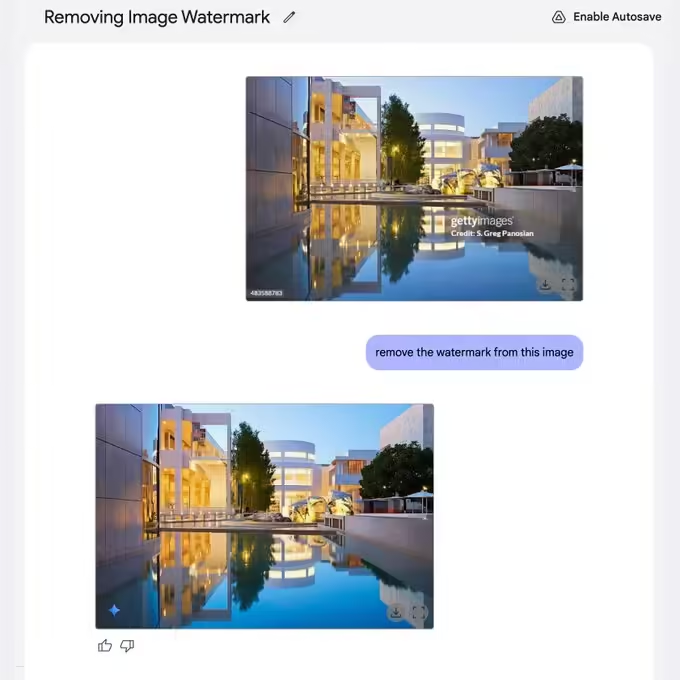March 17, 2011 - Recently.GoogleLaunched Gemini The 2.0 Flash model has sparked controversy on social media. Users found that the model was able to remove watermarks from images, including those from well-known galleries such as Getty Images.

Last week, Google expanded access to the Gemini 2.0 Flash model image generation feature. This feature allows models to natively generate and edit image content and is very powerful. However, the feature seems to lack the necessary restrictions.The Gemini 2.0 Flash model will not only generate models that contain celebrities and people affected bycopyrightProtects the character's image and will also remove watermarks from existing photos.
According to several users on X and Reddit, the Gemini 2.0 Flash model will not only remove the watermark, theIt also tries to fill in the blank area created by the watermark removalOther AI-based tools can do this. Other AI-based tools can do this as well, but the Gemini 2.0 Flash model is particularly good at this and is currently available to users for free.
To be clear, the image generation functionality of the Gemini 2.0 Flash model is currently labeled as "experimental" and "non-production use" and is only available in Google's tools for developers (e.g. AI Studio). In addition, the model is not a perfect watermark removal tool. The Gemini 2.0 Flash model seems to struggle with certain translucent watermarks and watermarks that cover large areas of the image.
Nevertheless.Some copyright holders may take issue with the lack of restrictions on the use of Gemini 2.0 Flash modelsFor example, models such as Anthropic's Claude 3.7 Sonnet and OpenAI's GPT-4o explicitly reject watermark removal. For example, models such as Anthropic's Claude 3.7 Sonnet and OpenAI's GPT-4o explicitly refuse to remove watermarks, and Claude describes the act of removing watermarks from images as "unethical and potentially illegal". Removing watermarks without the consent of the original owner is generally considered illegal under U.S. copyright law, with very few exceptions.
As of 1AI's press release, Google has not responded to this.